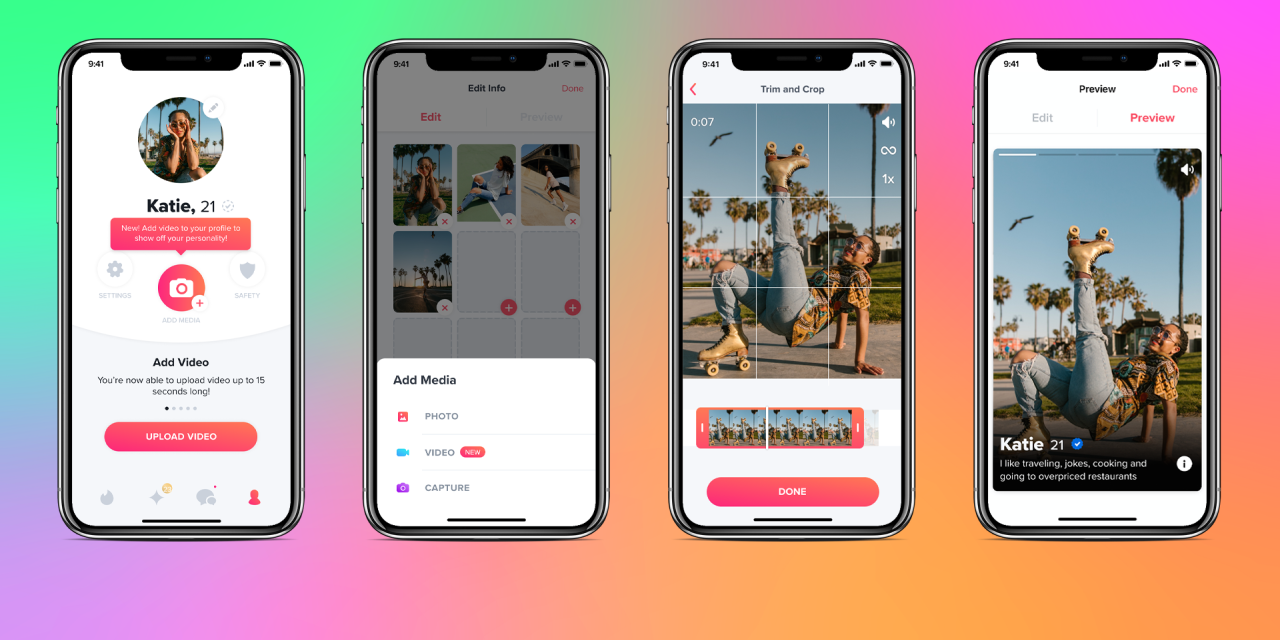The operators of dating app Tinder have become the latest tech companies targeted by a potentially massive class action under Illinois’ biometrics privacy law – the same law used by class action lawyers to generate settlements against Facebook and Google worth hundreds of millions of dollars.
The lawsuits claim the companies violated the Illinois Biometric Information Privacy Act by improperly scanning the faces of people who upload their photos to verify their identities for their profiles on the massively popular Tinder app.
The lawsuit was filed on behalf of named plaintiffs Bria Randle, Vanessa Gusman, Kasie Sedwick, Nicole Demonte, Ainsley Jacobson and Brandy Luker. All of the plaintiffs are identified solely as residents of Illinois who used the Tinder app.
The lawsuit centers on claims Match improperly scans the facial geometry of people who verify their identity on Tinder.
According to the complaint, Tinder offers users the opportunity to earn a “blue checkmark” on their profile, meaning Tinder has “verified” their profiles under its Liveness Check and 3d Face Authentication process.
Under those processes, Tinder users upload a video selfie to the platform. Tinder then scans the user’s face in the video to “confirm the video was taken by a real, live person, and that it was not digitally altered or manipulated. The system then allegedly scans other photos the Tinder user submits, and “extracts facial geometries using facial recognition technology to generate a unique number or facial geometry template” to compare other photos against.
The lawsuit doesn’t claim Tinder can’t use the facial recognition tech to verify users’ identities.
Rather, the lawsuit accuses Match and Tinder of failing to first secure written consent from Illinois Tinder users and provide certain notices to those people concerning how the facial scans will be used, stored, shared and ultimately destroyed, as allegedly required by the Illinois BIPA law.
According to the complaint, all of the named plaintiffs have used the Tinder verification process since 2020.
The lawsuits seeks to expand the action to include everyone in Illinois who has used Tinder and its Liveness Check and 3d Face Authentication systems.
The complaint doesn’t estimate how many people may ultimately be involved. However, in the U.S. overall, it is estimated 7.8 million Americans use Tinder every month. And according to published reports, Chicago ranks as one of the three cities with the most active Tinder users in the country.
The lawsuit comes as one of the latest potentially huge class actions to target a big tech firm under the Illinois BIPA law.
Similar class actions over notice and consent requirements for photographic face scans also were filed against a host of other social media platforms and photo sharing apps. In two of the most notable such cases, Facebook agreed to settle the claims against it for $650 million, while Google settled for $100 million.
From those class actions, eligible class members received $400 each from the Facebook settlement, and are slated to get about $150 each from the Google settlement. The lawyers who brought the lawsuits received $97 million from the Facebook deal, and will get $35 million from the Google case.
Class actions under the BIPA law, even for lesser amounts, have still largely proven very lucrative for plaintiffs’ lawyers. The bulk of the BIPA class actions to date have mostly targeted employers who are accused of failing to provide notice and obtain consent from workers before requiring them to scan fingerprints or other biometric identifiers to verify their identities when punching the clock or accessing secure facilities in work places.
Under the law, plaintiffs are allowed to demand damages of $1,000-$5,000 for each violation. The law has been interpreted to define individual violations as each time a fingerprint scan or other biometric scan occurs. This could leave even moderately sized businesses facing potentially catastrophic damages running far into the millions of dollars.
Further, courts have, to this point, largely rejected attempts by defendant businesses to sidestep the lawsuits or at least limit the potential damages. As a result, nearly all businesses targeted by such class actions to this point have opted to settle, with employer settlements ranging from hundreds of thousands of dollars to as much as $50 million.
Lawyers have typically claimed a third of those settlement funds.
In the Tinder case, plaintiffs are represented by attorneys Brandon M. Wise, Paul A. Lesko and Adam Florek, of the Peiffer Wolf firm, and attorneys Mason A. Barney and Sonal Jain, of Siri & Glimstad.
